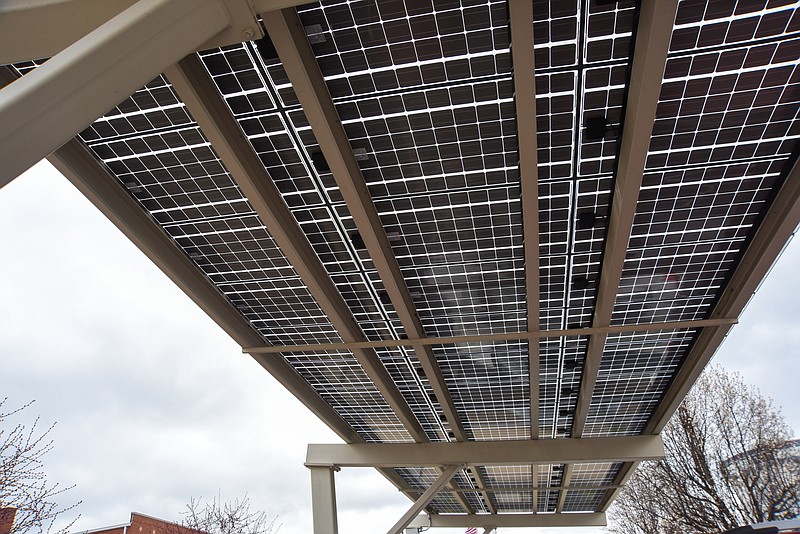Residents from northern Callaway County met with county commissioners this week, asking what can be done about solar companies attempting to set up farms in the area.
They proposed the county look into an ordinance at least requiring farms to be 2,500 acres, or about a half mile, from the nearest residence.
The county's been contacted by two solar companies, one around New Bloomfield and the other near Kingdom City, although residents have reported more to them.
County residents have voiced concern about the environmental impact of panels, proximity to homes and schools, potential disasters like fires and tornadoes, and impact on local taxes.
Presiding Commissioner Gary Jungermann said the commission isn't in favor of the potential companies coming in, but is limited in what can be done.
"I don't think any of us truly want them here," he said. "It's just, how do you stop them?"
From the county's side, he said, there's only a couple options.
The county assessor can declare land with solar panel farms commercial property, which gets taxed at a higher rate than residential or agricultural.
County Assessor Jody Paschal has said he intends to, but he's also worried the companies will lobby in Jefferson City for the rates to go back down.
Jungermann said from a county commission side, the recommendation he's received from officials in other counties is to establish planning and zoning, which Callaway County doesn't currently have.
However, he said, it couldn't be a zoning code for specifically solar panel farms. It would have to be one for the county as a whole and would also mean setting up a planning and zoning board with staff to advise the commission on request changes.
It would also need to be voted on by county residents, which hasn't passed in the past.
Jungermann said the county commission could enact an ordinance, which would put some restrictions on aspects such as how close to the property line solar panels can be placed.
For instance, the county has a wastewater ordinance that bans property owners from disposing of their wastewater on other people's properties.
The issue with an ordinance is enforcement, he said, and current ones aren't well enforced.
"There's no meat in an ordinance," Jungermann said. "In counties, just like a city, enforcement is law enforcement ... a city is such a smaller unit that most people just abide by it because that's what they want in the city."
Ultimately, residents want a way to ensure the panels aren't too close to important structures like homes and churches.
They proposed the county require panels to be at least 2,500 acres, or around a half mile, from the property line.
The commissioners said they want to look into the enforcement aspect of an ordinance more, including talking with the sheriff about it, before voicing an opinion on the matter.
Commissioners also recommended residents reach out to their state representatives about the same concerns.
The City of New Bloomfield passed an ordinance in April that declares large-scale solar farms a public nuisance within 1,000 feet of city limits, requires a buffer around the panels and designed so no stormwater runoff enters the city limits.

